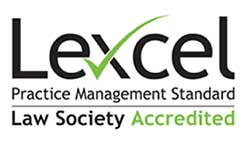If you find yourself facing questioning at a police station, either voluntarily or following an arrest, the experience can be a worrying and confusing one.
In many cases, people who find themselves in these circumstances are reluctant to ask for a lawyer for fear that this implies that they are guilty of an offence. This is categorically not the case – those who elect to have a lawyer present when answering police questions are ensuring that their rights are protected and are able to offer the best possible account of themselves and their actions. Should their case progress to court, those who work with a solicitor will find themselves in a much stronger position to offer a robust defence to any charges.
Wilford Smith Solicitors’s Criminal Defence Team takes pride in its reputation for unique representation, giving our clients a service that is exceptionally strategic and results driven. We know how stressful a police interview can be and will ensure that you are given straightforward, practical advice to ensure that your case is dealt with quickly and in accordance with the law. We are available to our clients at all times – 24 hours a day, 365 days a year – so you can receive the best possible legal advice as soon as you need it. Contact our expert Criminal Lawyers today to find out how we can help.
When can the police make an arrest?
The police can place someone under arrest if they have a valid arrest warrant. In some situations, you can be arrested without a warrant, for example if the police reasonably suspect that a crime has been committed or is about to be committed. If you are stopped and asked to provide your name and address, the police may be able to arrest you if they believe the information you have provided is false. An arrest may also be made if someone is believed to be a risk to themselves, others and property, or if they are causing an illegal obstruction of a highway.
Am I entitled to legal advice if I am arrested?
Yes, if you are arrested and subject to questioning at a police station you are entitled to have a solicitor present. The police are required to inform you of your right to free legal advice at the time of your arrest, as well as prior to questioning you at the police station. At this time, you can ask the police to contact your solicitor for you. If you do not have your own solicitor, you can ask the police to contact the station’s ‘duty solicitor’, an independent lawyer who is available to see people held at the station 24 hours a day. You can also get legal advice by asking that the police call the Defence Solicitor Call Centre (DSCC). In some cases, for example when the offence that you are suspected of is less serious, you may be offered advice from a solicitor via telephone instead of seeing a duty solicitor in person.
In most cases, the police cannot ask you questions once you have requested legal advice. If the offence that you are suspected of committing is particularly serious, and if it is authorised by a senior officer, the police can make you wait before seeing a lawyer. This waiting period cannot exceed 36 hours, or 48 hours if the offence is one of suspected terrorism.
What is an interview under caution?
An interview under caution is an interview conducted by the police, either on a voluntary basis or following an arrest. Interviews under caution usually take place at a police station and will be recorded so that everything discussed during it will be a matter of record. In many cases, what is discussed during the interview will be fundamental in determining the outcome of any future criminal case. If you are interviewed under caution you have the right to have a lawyer present. While a voluntary interview under caution may seem like a more informal approach, there still exists the threat of arrest if the police believe it to be necessary, and information gathered during a voluntary interview under caution can be used in the same way as in an interview following an arrest. As well as being used by the police, other investigating bodies including the Financial Conduct Authority (FCA), HMRC and the National Crime Agency (NCA) use interviews under caution as part of their investigating procedures. Similarly, any information arising from these interviews can be used in future criminal investigations.
Why choose Wilford Smith Solicitors?
Our aim is to conduct a robust defence on your behalf, and it is vitally important that this begins at your first police interview. If you are suspected of committing a criminal offence, you need to make the right decisions from the earliest stage of the police investigation – the answers you give during a police interview will play a role in determining whether you will be charged or released. You should seek legal advice at the earliest stage possible to maximise your opportunity to resolve the matter quickly and effectively.
Our criminal law solicitors regularly provide quality advice and representation for clients facing all manner of criminal allegations, including for road traffic offences, financial crimes and sexual offences. Regardless of the nature of your police interview or arrest, we can provide expert advice and representation. We will firmly fight your corner and make sure your rights and interests are protected throughout all interactions with the police.
Contact our Lawyers for Police Station Representation in England and Wales
OurCriminal Defence Solicitors are based in London, Sheffield and Manchester and serve clients throughout England and Wales. Whatever the reason of your police interview or arrest, contact us today on 0808 169 5677 to find out how we can help.



